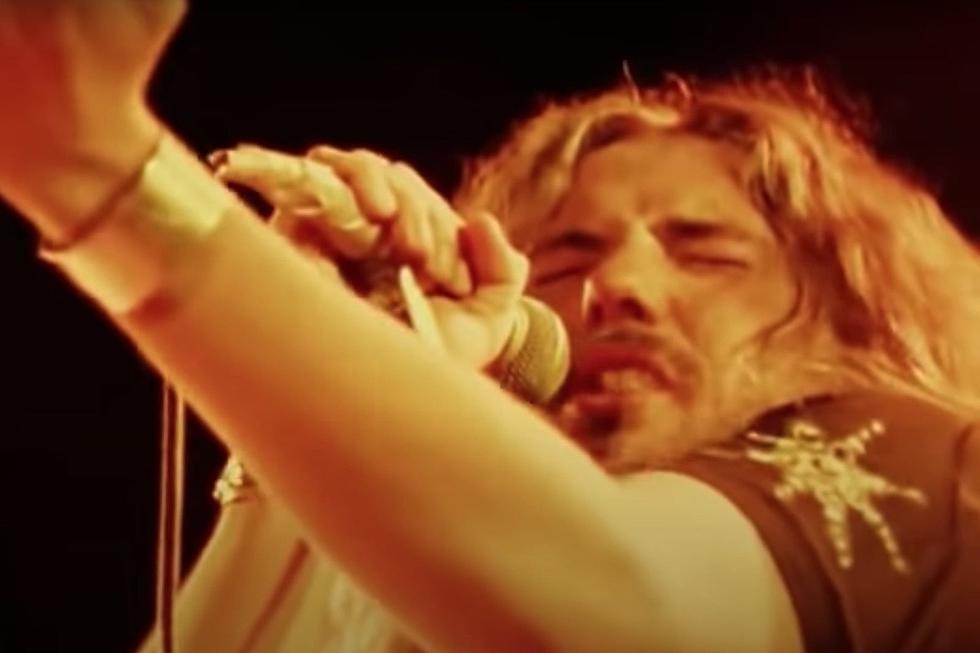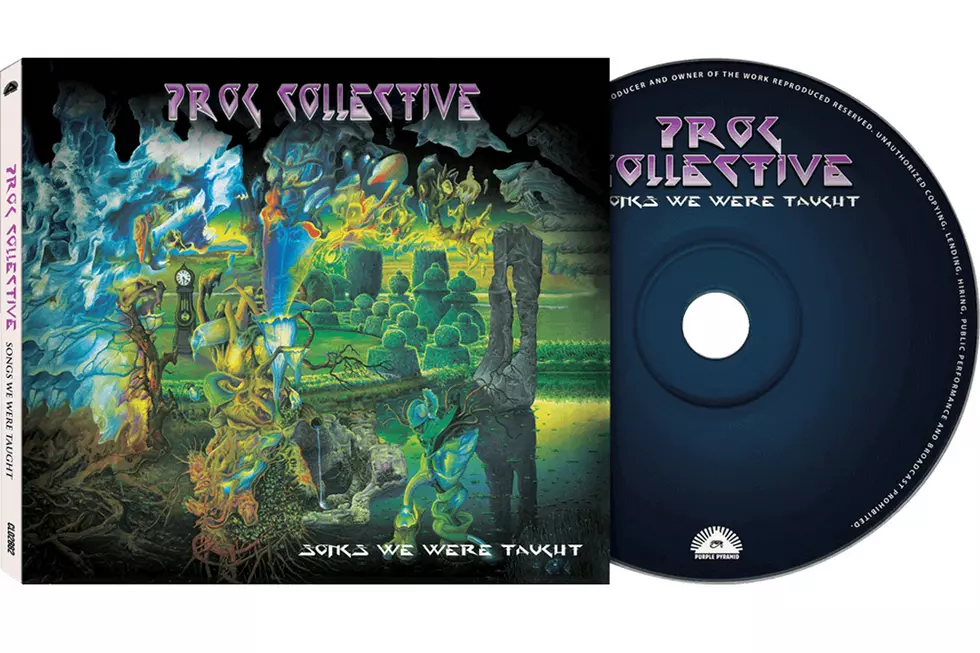
45 Years Ago: David Coverdale Quits as Deep Purple Disintegrate
Pieces started falling off long before Deep Purple finally came crashing down in the '70s.
First Ian Gillan and Roger Glover split, replaced by the more R&B-leaning David Coverdale and Glenn Hughes in 1973. Then the ill-fated guitarist Tommy Bolin took over for Ritchie Blackmore, and Deep Purple descended into malaise and addiction. Coverdale finally grew weary of it all and quit in 1976, only to be told that the group had already broken up. "A lot of drugs and alcohol were rearing their ugly heads," Coverdale said in 2015's Sail Away: Whitesnake's Fantastic Voyage, "and there was a great deal of disrespect for the legacy of Deep Purple, which I still maintain."
Coverdale had been plucked from obscurity by Blackmore, who immediately paired him with a more experienced second voice in the bass-playing Hughes. In fact, Coverdale's first time in a studio was with Deep Purple, in sessions for 1974's Burn.
"I got this opportunity and was literally, no pun intended, being thrown in the deep end," Coverdale told Jeb Wright in 2015. "Thank God I swam, but it was with the help of those guys. The five ego maniacs fighting for a spotlight came later."
Perhaps surprisingly, the internal conflict that cracked Deep Purple didn't grow out of the shared microphone. Coverdale and Hughes actually became fast friends and remained so in the decades that followed. Instead, behind the scenes, Blackmore was growing increasingly disenchanted with their bluesier influences.
He eventually made what appeared to be an abrupt departure, but tensions had been building for quite some time. "It was starting to change from being a hard rock 'n' roll band to something that was becoming a little more funky, which Ritchie hated," drummer Ian Paice said in Sail Away. "And Ritchie, being true to himself, just went, 'That's it, I'm off.'"
Unfortunately, Bolin arrived for 1975's Come Taste the Band already deep into addiction and carried Hughes further down the same dark path. Everything started to become unfocused onstage as an unhappy tour followed. Fans weren't ready to let go of Blackmore, and that drove Bolin further into drugs and alcohol.
"I was very challenged by how he treated himself, sadly. He was a beautiful and fragile soul," Coverdale told Wright. "Ritchie was so iconic. It was, I think, very challenging for Tommy to hear in concert, 'Where's Ritchie?' That is completely understandable."
Toward the end, Coverdale would disappear for lengthy stretches while Deep Purple trailed off into messy drug-addled jams, leaving Hughes as the lone vocalist. Everything came to a head after a March 1976 concert at the Empire Theatre in Liverpool. Coverdale went to the shared dressing room of Paice and organist Jon Lord, the band's two remaining cofounding members, to announce his resignation.
"I'm not ashamed of any of the shows I did; I worked my bollocks off. No one was talking about sacking me. I left," Coverdale told NME in 1976. "I got the impression that everybody was trying to inject their little bits of fiddly-diddly. Then it got disjointed and became too abstract. It went off on tangents ... I wanted out."
Watch Footage From David Coverdale's Final Tour With Deep Purple
Lord and Paice informed a still teary-eyed Coverdale that they'd already decided to end Deep Purple. Hughes had actually provided the final nudge that night onstage.
"At one point during the show, Glenn said to the audience, 'I'm sorry we're not playing very well, but we're very tired and jet-lagged.' And I remember spluttering to myself, 'Speak for yourself,'" Lord says in Gettin’ Tighter: The Story of Mk IV. "I was working like a Trojan to try to make this work, Paicey was playing like a madman just to keep it all together. Coverdale was singing his socks off. So, to hear this guy who was extremely high on various substances telling the audience, 'I'm sorry, we aren't playing well' kind of rankled me a bit."
Afterward, Lord and Paice had an emotional discussion. "I said, 'Ian, that's it, isn't it? That's absolutely the end of this band as far as I'm concerned. Why are we doing this to ourselves?'" Lord added. "So, he and I shook hands and said, 'It's over. Thank God.' About 10 minutes later, Coverdale came in, big blustery guy that he is, and he said, 'I'm leaving the band!' And we said, 'David, there's no band to leave.'"
Coverdale ultimately felt that there had been too many compromises in Deep Purple, too many times where they allowed their fates to be dictated by outside forces – or by simple lethargy. He vowed to do things differently moving forward, and he followed through: Coverdale's next band, Whitesnake, would become an ever-evolving amalgam featuring a seemingly countless number of musical collaborators.
Hughes was the last to find out that Deep Purple were finished. "So, I'd flown over to England for Ian Paice's wedding, and Glenn was going, 'Oh, Dave, I've got all of these great ideas; we've got to use our voices more,' and all this – and I go, 'Glenn, hasn't anybody told you? I'm out,'" Coverdale said in Sail Away: Whitesnake's Fantastic Voyage.
"And he was utterly shocked," Coverdale added, "and I was, like, 'We blew it. It could have been incredible, but we blew it.' Which is one of the reasons now, if I feel that kind of negative energy creeping into any scenario – even private ones, let alone professionally – I change it. If I can't see the light, I change it." They agreed to wait to make an official announcement, and the news wasn't confirmed until July 1976. Even then, however, Coverdale still hadn't made much progress in mapping out his next move. "I was frightened to leave the band," he later admitted. "Purple was my life. Purple gave me my break, but all the same I wanted out."
Coverdale finally entered the studio in August to begin work on what would become his solo debut, 1977's unsurprisingly rather tentative White Snake. "It's very difficult to think back and talk sensibly about the first album," Coverdale said in Sail Away. "White Snake had been a very inward-looking, reflective and low-key affair in many ways, written and recorded as it was in the aftermath of the collapse of Deep Purple."
By the time the LP arrived on store shelves, Bolin had overdosed and died. White Snake sunk like a rock, but the name stuck. Lord and then Paice joined early versions of Coverdale's new group, building a sturdy bridge to his second, far more celebrated chapter.
Top 50 Classic Heavy Metal Albums
Jon Lord and Ian Paice Were in One of Rock’s Forgotten Supergroups
More From Highway 98.9










